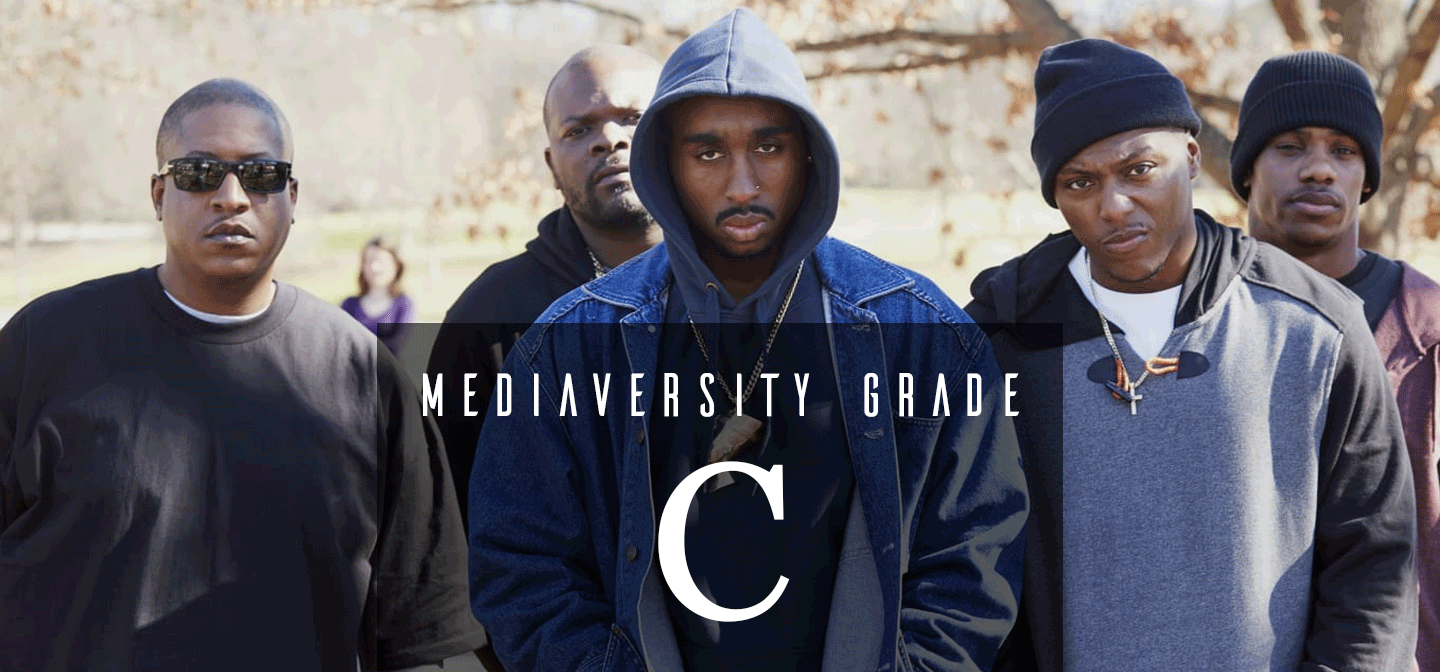Kneecap
“Whenever two women have a conversation, it’s only ever about Kneecap or its male band members.”
Title: Kneecap (2024)
Director: Rich Peppiatt 👨🏼🇬🇧 (Irish)
Writers: Story and screenplay by Rich Peppiatt 👨🏼🇬🇧 (Irish), story by Móglaí Bap 👨🏼 (Irish), Mo Chara 👨🏼 (Irish), and DJ Próvai 👨🏼 (Irish)
Reviewed by Gavin 👨🏼🇬🇧🌈♿
Technical: 4/5
The first Irish-language film to premiere at Sundance Film Festival unveiled to raucous reception, taking home an Audience Award in its category—and it’s easy to see why. Kneecap, like the band it’s named after, fizzes with infectious energy, thanks to snappy editing, playful camera work, and entertaining performances. This semi-biographical story explores how the hip-hop trio from West Belfast, who began rapping in their native tongue in 2017, rose in popularity and became a symbol of rebellion and community.
Although main characters use fictionalized names, each member of Kneecap essentially plays themself, adding an authenticity to the story and making us fall in love with their cheeky but endearing natures as they aspire to preserve the Irish language through politically charged rap songs. You’ll root for these working-class lads as they face opposition from different social groups and the government, all in the name of cultural freedom.
Every frame bursts with life, with abstract camera angles and hand-drawn graphics accentuating lyrics and dialogue. The editing hurtles from one high-octane scene to the next, but writer-director Rich Peppiatt makes sure we understand Belfast and its citizens amongst all the chaos, albeit through dark and absurdist humor. Kneecap members record songs and bond together in a makeshift music studio on wild acid trips, and passionate sex between a Protestant and a Catholic is fuelled by talk of revolution. Straight-faced scenes bring to light more serious real-world issues, particularly around tensions between Republicans and Unionists, and show the tough lives led by working-class youth. While this is great to see, there are a multitude of subplots that slow down Kneecap’s otherwise terrific pacing, seemingly an attempt to inject more drama by raising the stakes for the band members and their loved ones. But ultimately, editing and narrative issues aren’t enough to derail this entertaining ride. After the credits roll, you’ll want to take up Irish lessons yourself.
Gender: 2/5
Does it pass the Bechdel Test? NOPE
The film offers supporting roles for women who orbit Kneecap’s band members: Naoise’s (Móglaí Bap) mother Dolores (Simone Kirby), Liam’s (Mo Chara) lover Georgia (Jessica Reynolds), and J.J.’s (DJ Próvai) wife Caitlin (Fionnuala Flaherty). But they’re all here to serve a man’s story. Whenever two women have a conversation, it’s only ever in relation to Kneecap or one of their members. The actors deliver great performances, such as Kirby’s compelling take on a mother processing grief, and Reynolds’ spirited scenes elicit some big laughs. But in the end, Kneecap is very much about the members of an all-male hip-hop trio.
Race: 2/5
This film centers around a white perspective, but we rarely see an authentic Irish story focused on its people. We follow Kneecap’s real life objective of getting Northern Ireland’s youth to learn their native language and not let it die out. The film blends Irish with English throughout the runtime and makes a solid argument for the importance of language to a country’s culture and society. Naoise’s dad, Irish Republican Army member Arlo (Michael Fassbender), remarks how “every word of Irish spoken is a bullet fired for Irish freedom.” Kneecap lyrics on the surface talk about sex, drugs, and rebelling against the authorities, but they’re actually exploring life as a young person growing up in Belfast after The Troubles, and of political activism against British rule. These lyrics inform the major themes running through the movie and we also see on a personal level the power of language: how it's used as a tool for rebelling and bringing people together.
While it’s wonderful to see genuine Irish representation, the fact remains that there is only a single person of color (Matthew Sharpe, who’s multiracial) in a very minor speaking role. True, Belfast has a large white population, making up over 90% of the population in 2021. But for a film that hammers home the importance of culture and community, it’s a shame that the sole non-white character is nothing more than a goofy henchman.
Mediaversity Grade: C- 2.67/5
Kneecap makes for a joyous time thanks to a charming cast and heartfelt story. Furthermore, the film explores a language and group of people—working-class Irish from Belfast in their 20s and 30s—that we don’t see much of in media. But in the end, it’s still told through a typical straight, white, and male perspective.




